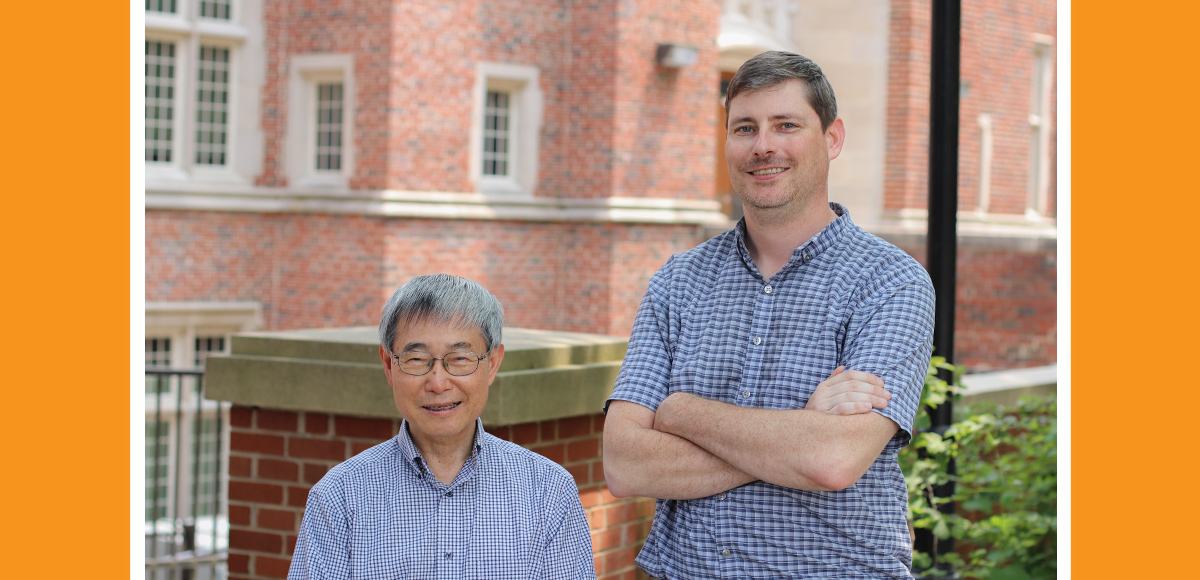Lass and Liaw Put Their Spin on Turbines with DEPSCoR Grant
A duo of Tickle College of Engineering researchers is among 28 collaborative academic teams chosen by the Department of Defense to share $18 million in Defense Established Program to Stimulate Competitive Research (DEPSCoR) awards for 2023. These awards are designed to strengthen basic research infrastructure at institutions of higher education in under-utilized states or territories.
The UT recipients are Department of Materials Science and Engineering faculty members Eric Lass, assistant professor, and Peter Liaw, John Fisher Professor, Ivan Racheff Chair of Excellence, and National Alumni Association Distinguished Service Professor.
Their supported project will study the thermodynamics of strength and ductility in refractory compositionally complex alloys (R-CCAs). These materials, also called refractory high-entropy alloys (R-HEAs), show great promise for applications in high-temperature environments, such as in turbines used in power generation and aircraft engines, and hypersonics.
The challenge, as in many materials science investigations, is to improve performance efficiency within these applications through the development of better-behaving materials.
“We hope to uncover a relationship between thermodynamics and deformation behavior in R-CCAs,” said Lass. “If successful, it will lead to the ability for materials engineers to tailor the strength and ductility—the degree to which a material can be plastically deformed—through changes in the alloy composition or processing.”
The main current drawback is that these materials are generally brittle, fracturing without much plastic (permanent) deformation, much like glass.
“Our project will study the thermodynamics of the plastic deformation process,” said Lass. “While thermodynamics are not usually used to understand strength and deformation, they do govern phase transformations, or the transition of a material from one phase to another, as in the melting of ice into water.”
In certain R-CCAs, an effect called “TRansformation-Induced Plasticity” (TRIP) is the mechanism by which plastic deformation occurs. Previous experiments have indicated that even when deformation occurs by mechanisms other than TRIP, thermodynamics may still play a role.
“This leads to our central hypothesis that thermodynamics governs deformation behavior in all R-CCAs, regardless of deformation mechanisms,” said Lass. “Our project probes this central theme.”
If the current shortcomings of R-CCAs can be overcome, this progress will enable the operation of turbine engines at much higher temperatures than currently possible.
“Increasing the operating temperature of a turbine engine increases fuel efficiency and energy conversion efficiency, which will substantially reduce the environmental impact of power generation and air transportation,” said Lass. “Additionally, if R-CCAs can be made ductile, the considerable improvement over current materials could offer significant advantages for the US military.”
The DEPSCoR award helps these UT researchers lay a foundation for scientific investigations that could lead to commercially viable new materials that impact multiple industries.
